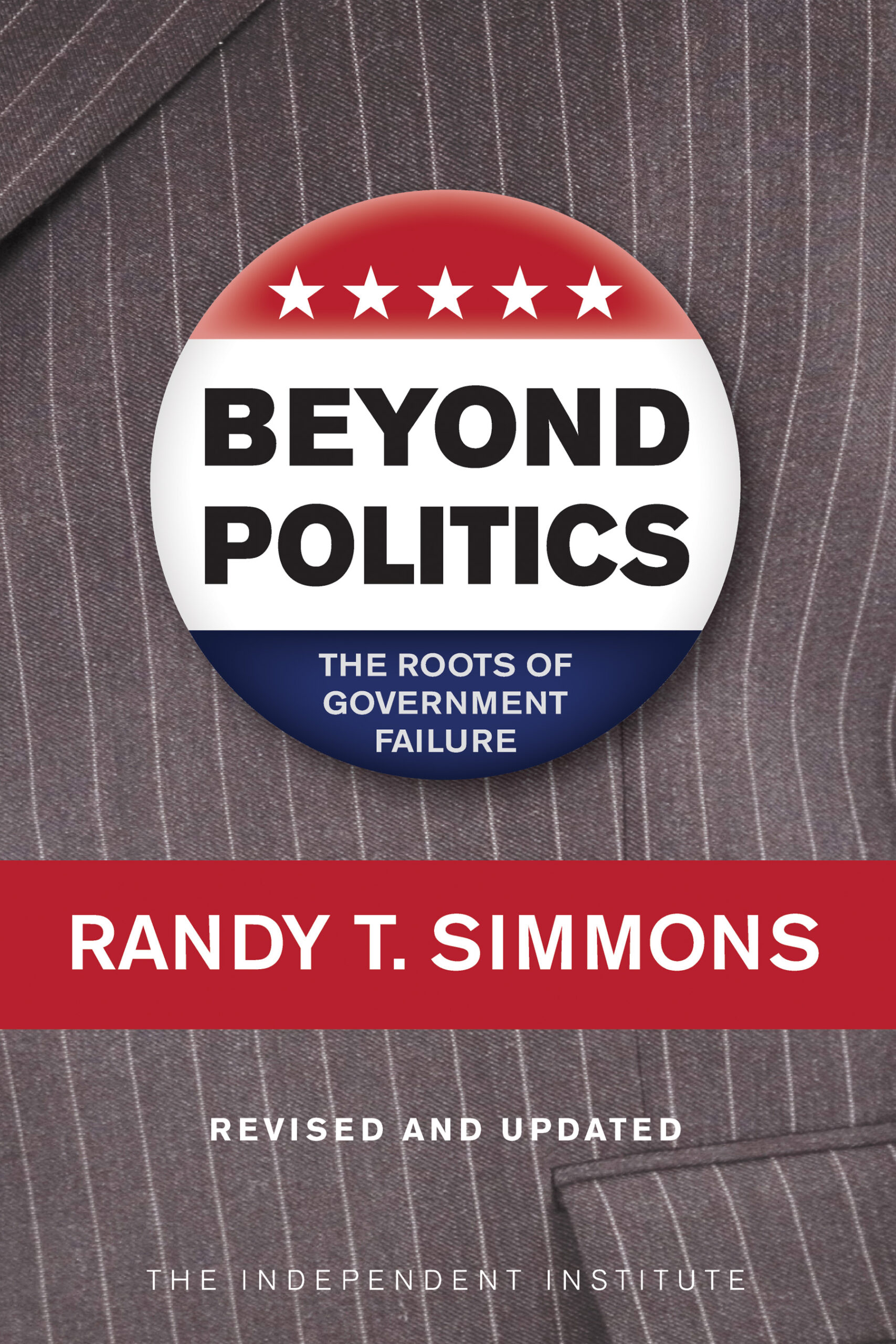
Politics and economics cannot be separated. Economies do not exist in a vacuum and neither do politics. Political systems shape, sometimes control, and often misdirect economic systems. Likewise, economic interests shape, sometimes control, and often pervert politics.
The combined study of the two fields seems like a no brainer, yet here we are 15 years later with economists and policy analysts focusing on the same old market failures and government solutions. This path is well traveled because, as Simmons says, “no human institution is perfect so it’s easy to find imperfections.” It’s also easy to call for government intervention if you think government is “benevolent” and have no sense of how government actually functions.
The more difficult and less-traveled path involves recognizing the effects of the political system on the “shape, direction, and rules of the economy.” Protecting consumers, the environment, and the poor are widely shared values, “but advancing these goals politically often yields greater costs than benefits.”
Simmons uses the Endangered Species Act as an example. Congress passed the law in 1973 and Richard Nixon signed it because it was “such a good thing for the environment.” It prohibits people from “taking” endangered or threatened wildlife. “Take” includes “harming” a listed species.
But what does harming mean? The Fish and Wildlife Service, who manages the Endangered Species Act, interpreted harm to mean habitat modification on private and public lands. Hence, a landowner harvesting timber, a farmer plowing, or a developer clearing land suddenly stands in the same position as a poacher taking aim at a whooping crane. So, if you modify your habitat, you might as well get the shotgun out and shoot what you can, because you’re going to be treated the same.
I still remember Professor Simmons (or Randy as he likes to be called) asking my freshman Poly Sci class, “What would you do if a wolf or a grizzly showed up on your ranch?” There was some giggling in the back—where the ranch kids sat with their well-warn baseball caps. One of them was called on. His answer, “Well, we’d just shoot, shovel, and shut up.” Simmons response: “Shoveling a hole for a grizzly is a pretty big hole, but I guess you do have tractors with front loaders.”
Many of the students, including myself, were appalled. But Simmons went on to explain that environmental regulation is often ideologically driven and has very little to do with actual outcomes—we have more endangered species today than we had when we created the Endangered Species Act.
The Endangered Species Act punishes landowners who conserve the public interest, and no claims about the value of biodiversity or moralizing about the diversity of life will change that basic fact. If we want to conserve species, we need to make it in people’s individual interest to do so. If we don’t we’re going to continue to fool ourselves with regulations.
If you are interested in learning more about politics, bureaucracy, courts, and legislation be sure and read the recently revised and updated version of Beyond Politics. Randy is a well-qualified author; he has served as a mayor, he’s a bureaucrat because he teaches at a state university, he teaches Law and Economics so he’s knowledgeable about the courts, and he is a member of the Board of Directors of the Utah League of Cities and Towns. As Randy says, “I am an example of everything that’s wrong in America!”


